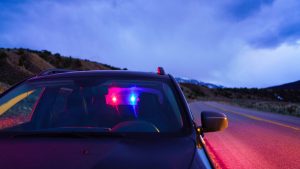Did you know that “unconsciousness” may be a complete defense to a criminal charge, including the offense of driving under the influence? One may be deemed “unconscious” even though they are walking and talking. The only requirement for this defense in a DUI case is that there must be at least a reasonable doubt that the state of unconsciousness was caused by involuntary intoxication.
One instance in which the defense arises is where the accused took a prescribed dose of Ambien (which contains Zolpidem). It is now well documented that this powerful sleep agent can cause people to “sleep drive” after going to bed. If the individual took the medicine as prescribed (which generally means no more than a 10mg dose just before bedtime and not knowingly mixing it with alcohol), and then drove in a state of unconsciousness, then the defense is properly invoked.
A finding of involuntary intoxication is not properly barred just because the accused knowingly took the medicine. The pivotal question is whether the defendant knew or should have known that his or her use of Ambien, taken as prescribed, would cause him or her to sleep drive in a state of unconsciousness. That Defendant knew the medication could make him or her drowsy and impair his or her ability to drive does not establish that he or she knew or had reason to know he or she would suddenly become unaware of his or her actions and lose his or her ability to make rational decisions, such as whether to drive.
In People v. Mathson (2012) 210 Cal.App.4th 1297, the defendant did not take his Ambien as prescribed. He not only ingested it both before he went to bed and again at 7:00 in the morning, but he took more than what he was supposed to take. The Mathson Court’s broad statement then, that the defense may not be invoked when someone takes Ambien voluntarily, is what we lawyers refer to as dicta (i.e., an opinion unnecessary to resolution of the case, and therefore not binding on lower courts). The dicta in Mathson should not be followed because none of the prior cases relied upon it support it (in each of those cases the defendant ingested illegal drugs or failed to take prescription medication in accordance with the instructions).
If you would like to learn more about this defense on your California DUI case, please contact Bay Area attorney Paul Burglin.
About the Author: Paul Burglin is a Regent with National College of DUI Defense (NCDD). He is Board-Certified in DUI Defense by the NCDD, as approved by the American Bar Association (ABA), and is a graduate of the Robert F. Borkenstein Course on Alcohol and Highway Safety. He co-authors the two-volume treatise California Drunk Driving Law (Burglin, Simons & Kuwatch; James Publishing)
